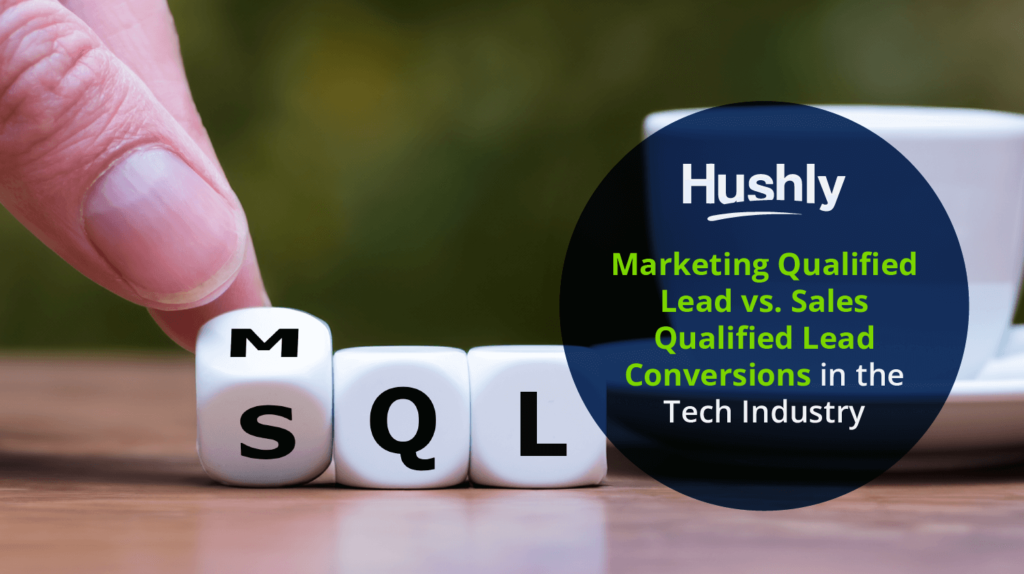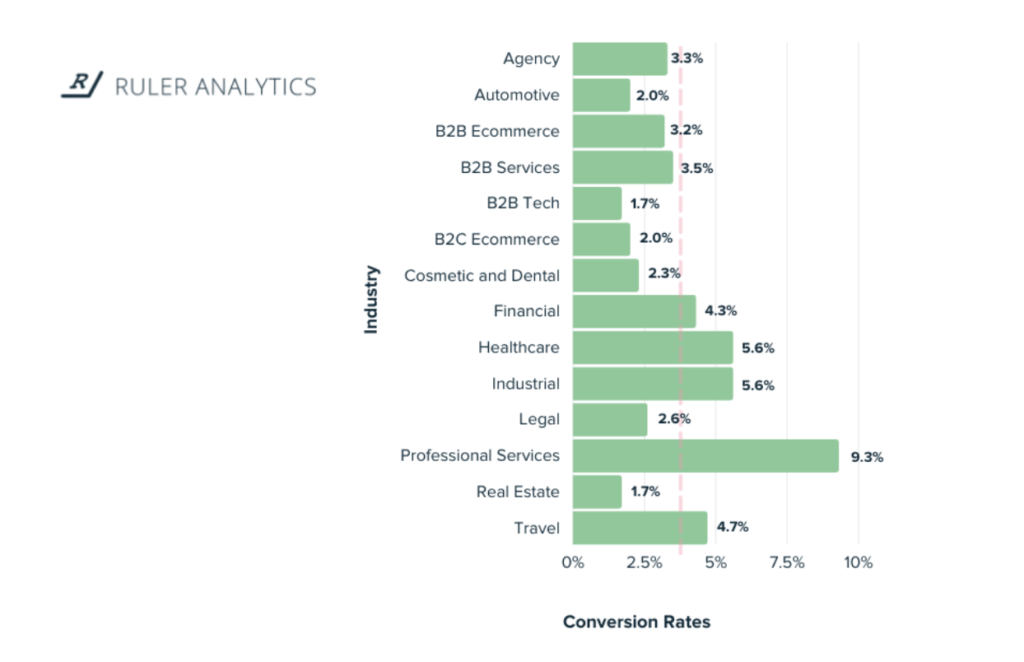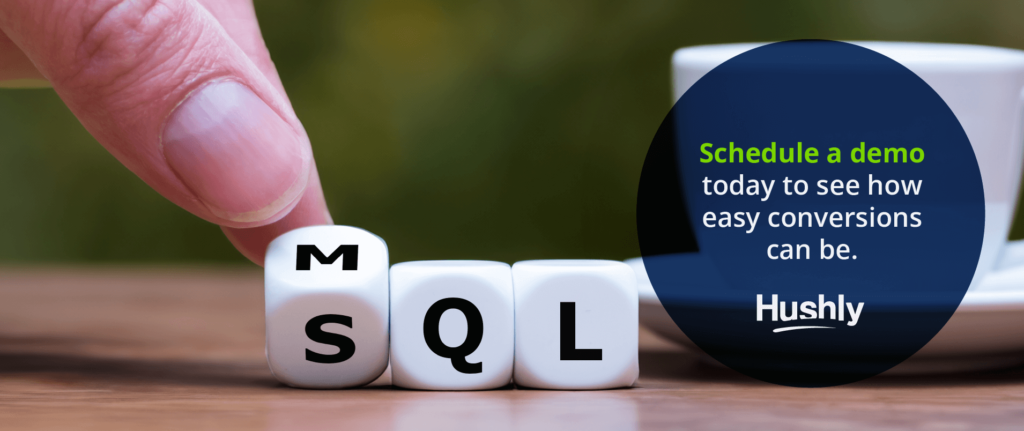Converting a stranger to a lead is a massive win for any marketer. However, it’s just the first step in the journey to the ultimate conversion: a sale. That lead will cross several more barriers before you can count it as a profitable success. One barrier is moving from a marketing-qualified lead to a sales-qualified lead.
What is a sales-qualified lead, and how is it different from a marketing-qualified lead?
We will dive into this crucial conversion step and how you can increase your sales-qualified leads.

MQL vs. SQL
There are two primary types of leads: marketing-qualified leads (MQLs) and sales-qualified leads (SQLs). Here’s a quick look at SQL vs. MQL definitions as well as what makes each unique.
Marketing Qualified Leads (MQL)
MQLs are leads that have shown interest in your tech products or services but are not yet ready for direct sales engagement. Once you capture that lead’s information, they enter the first stage of a new lead.
These leads are typically in the early stages of the buyer’s journey. They express interest by downloading a whitepaper, subscribing to a newsletter, or attending a webinar.
MQLs are prospects that need further nurturing and education before transitioning to the sales stage.
Sales Qualified Leads (SQL)
SQLs represent leads that have been thoroughly vetted and are ready for direct interaction with the sales team.
These leads have progressed beyond the initial stages of interest and engagement. For example, they have consistently opened nurturing emails, downloaded several whitepapers, and even signed up for your product demo.
Three characteristics that turn a marketing-qualified lead into a sales-qualified lead are:
- Need: They have expressed a need for your products or services.
- Budget: They have the finances to follow through with purchasing those products.
- Timeline: They plan to purchase immediately.
They are now ready for your tech sales team.
SQL vs. MQL: Why Are MQLs and SQLs Distinct?
Not all leads are the same. A lead is anyone who fills out a contact form. However, you will gather information from people ranging from a key decision-maker in a large tech corporation to your neighbor Sam, who wants to learn more about what you do in your job.
You’ll have an initial qualification round that weeds out your neighbor Sam and similar disinterested visitors. The leads you have left match your buyer persona, which outlines the businesses that could use your tech products and who their key decision-makers are. They have expressed interest in your products or services. These are your marketing-qualified leads.
Even though those marketing-qualified leads match your buyer persona and are interested in buying, it doesn’t mean they have the budget or are ready to buy at that time.
In fact, 79% of marketing-qualified leads don’t convert to sales.
If your sales team chased every marketing-qualified lead, you would waste a considerable number of resources. Then, you may not have the resources you need to convert the actual serious buyers.
However, by separating leads into groups, you can customize your marketing strategies for the point they are in the sales funnel. That way, you can stretch your budget further by pouring your sales efforts on those who show signs of purchase readiness.
How to Adjust Your Marketing Strategies Between MQLs and SQLs
What strategies belong with which lead group? Use this guide to help you fit the most effective strategy to each stage of the buyer’s journey.
Nurturing MQLs
You captured a couple hundred new leads and pulled out the ones matching your buyer persona. You now have a list of marketing-qualified leads. Through these strategies, you aim to identify the ones ready to buy and encourage those not prepared to warm up to your products.
Here are some of the most effective lead nurturing strategies to accomplish those goals:
- Content Personalization: Tailor content to address the specific pain points and interests of MQLs. Provide valuable resources such as in-depth guides, webinars, and case studies to nurture their understanding of your product or service.
- Lead Scoring: Implement lead scoring to identify MQLs based on their interactions with your content. Assign scores for actions like opening emails, downloading resources, and attending events. This helps prioritize leads for targeted nurturing efforts.
- Automated Email Campaigns: Set up automated email campaigns that deliver relevant content to MQLs over time. This ensures a consistent and personalized engagement, gradually moving them through the buyer’s journey.
Converting SQLs
You performed lead scoring, and a few dozen leads were officially moved from MQLs to SQLs. Your goal is to now quickly close before those leads lose interest. Here are some strategies to help with that process:
- Personalized Sales Outreach: Since SQLs have demonstrated a higher interest and intent, personalized sales outreach has become crucial. Craft tailored messages that address their specific needs and showcase your value proposition.
- Timely Follow-Ups: Act promptly when dealing with SQLs. Given their readiness to engage with the sales team, timely follow-ups are essential. Automated reminders and customer relationship management (CRM) tools can help ensure that no potential opportunity slips through the cracks.
- Customized Demos and Presentations: Provide SQLs with customized demos and presentations that align with their specific requirements. Demonstrating how your product or service directly addresses their pain points increases the likelihood of a conversion.
The average B2B tech conversion rate is about 1.7%.

Image from Ruler Analytics
3 Ways to Boost Your MQL to SQL Conversion Rate
Are your marketing-qualified leads not converting to sales-qualified leads? Here are a few ways to adjust your strategies to increase your conversion rate:
1. Clearly Define MQLs and SQLS
Clearly define what constitutes an MQL and an SQL within your organization. Align the sales and marketing teams with these definitions to ensure a unified approach.
Open regular communication channels between the sales and marketing teams to share insights and feedback. This collaboration enhances the lead qualification process because you’re on the same page about what works and what doesn’t.
2. Use Data-Driven Lead Scoring
Moving leads from MQL to SQL is a numbers game.
Leverage data analytics to fine-tune your lead-scoring model. Analyze historical data to identify patterns and behaviors indicating a higher conversion likelihood.
Here are some indicators that a lead might be ready to move forward:
- Downloading content
- Visiting your website
- Contacting customer service
- Past purchases
- Scheduling a demo
- Frequently opening emails
- Expressing direct interest in buying
Some actions do have higher scores than others. For instance, someone who schedules a demo might instantly become a sales-qualified lead. In contrast, another lead may need to download several whitepapers before they receive a high enough score for the sales team to reach out.
Continuously refine and optimize your lead scoring criteria based on the performance of past conversions. This approach ensures that your model remains relevant and practical.
3. Create a Content Map for Each Stage
Map your content to each stage of the buyer’s journey. Create content assets that align with the awareness, consideration, and decision stages to nurture leads through the funnel.
Use personalized content recommendations and targeted campaigns to guide MQLs through their journey, gradually building trust and understanding.
Hushly provides customized content recommendations on websites to help develop a content map that transforms MQLs into SQLs
Bonus Tip: Maximize Your Tech MQL to SQL Conversions
Understanding the distinctions between MQLs and SQLs is pivotal for successful conversions in the tech industry.
Organizations can create a seamless and effective lead conversion process by tailoring strategies to nurture MQLs and using personalized approaches to convert SQLs.
Hushly’s AI-powered conversion tools help every step of the way, including lead generation, scoring, and conversion. It’s your all-in-one conversion cloud for every stage your leads are at.
Are you interested in streamlining your conversion process?
Schedule a demo today to see how easy conversions can be.




